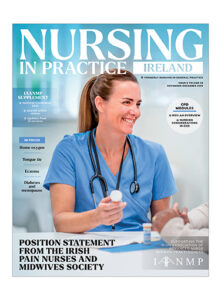NOTE: By submitting this form and registering with us, you are providing us with permission to store your personal data and the record of your registration. In addition, registration with the Med iLearning includes granting consent for the delivery of that additional professional content and targeted ads, and the cookies required to deliver same. View our Privacy Policy and Cookie Notice for further details.
ADVERTISEMENT
ADVERTISEMENT
Reviewed by: Theresa Lowry Lehnen (PhD, RANP General Practice, RNP)
Tags:
ADVERTISEMENT
*Start this module by clicking the first lesson link below.
Feeding difficulties are very common during early infancy, especially during the first six weeks following birth. Although the aetiology can be varied, the majority of infants present with similar symptoms which include irritability, difficulty in completing feeds, and poor sleeping patterns.
Therefore, differentiating between benign causes and more pathological underlying clinical conditions can be challenging. However, failure to thrive is rarely associated with feeding issues that have an underlying pathophysiology and knowledge of normal infant growth and weight gain patterns is an important first step for distinguishing between benign and more serious causes. In this module, we discuss the most common feeding issues encountered over the first three to six months of age (colic, gastroesophageal reflux disease, cow’s milk protein allergy, and lactose intolerance) and suggest an approach to their management.
To earn CME credit, follow these steps:
Each NurseCPD module is designed to be completed within the time designated on the Module Introduction page. This is an estimate of the maximum time required to complete the specific module and is determined by the format and content of the module. Users should claim only those credits that reflect the time actually spent on the activity.
To successfully earn credit, participants must complete the activity online, and receive a minimum score of 70% on the post-module assessment.
ADVERTISEMENT
ADVERTISEMENT
NurseCPD is an online continuing professional development site for Irish nurses by Irish nurses. NurseCPD is the ideal vehicle for completing your personal, self-directed CPD requirements - and it is free.
Sign Up
Updated: 15 Nov, 2025
Nursing in Practice Ireland November-December 2025
Read moreADVERTISEMENT